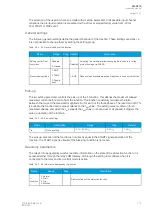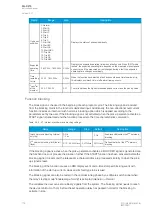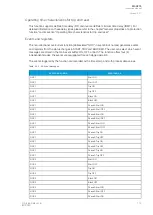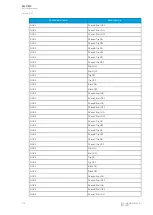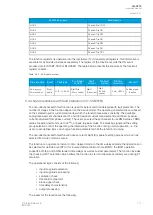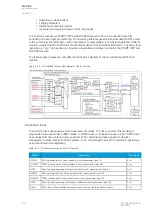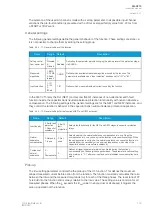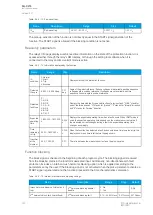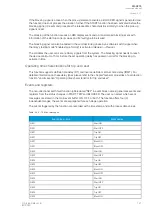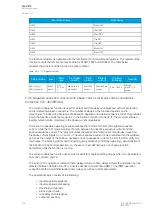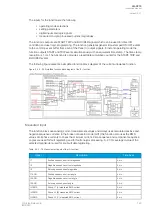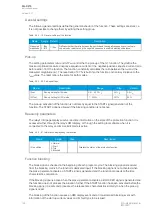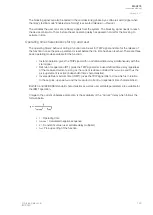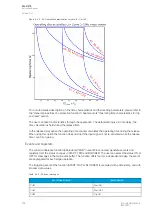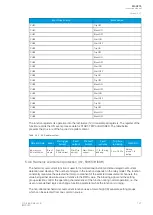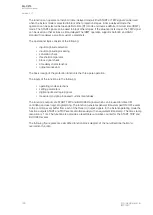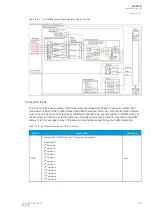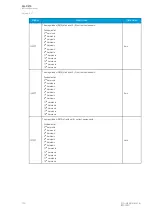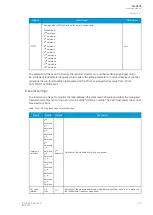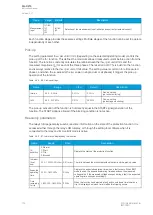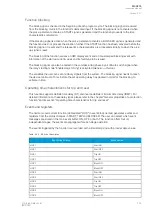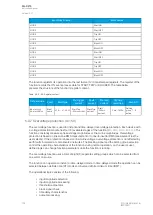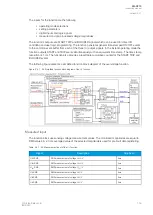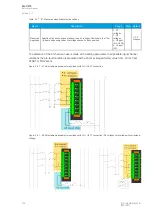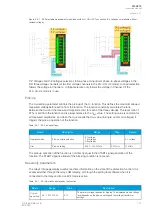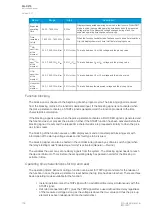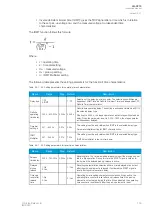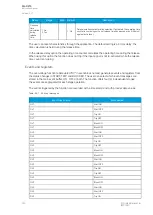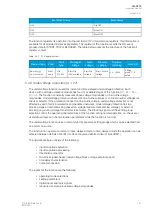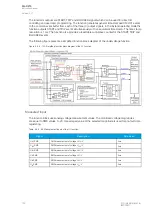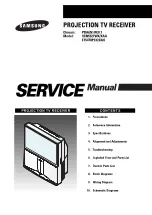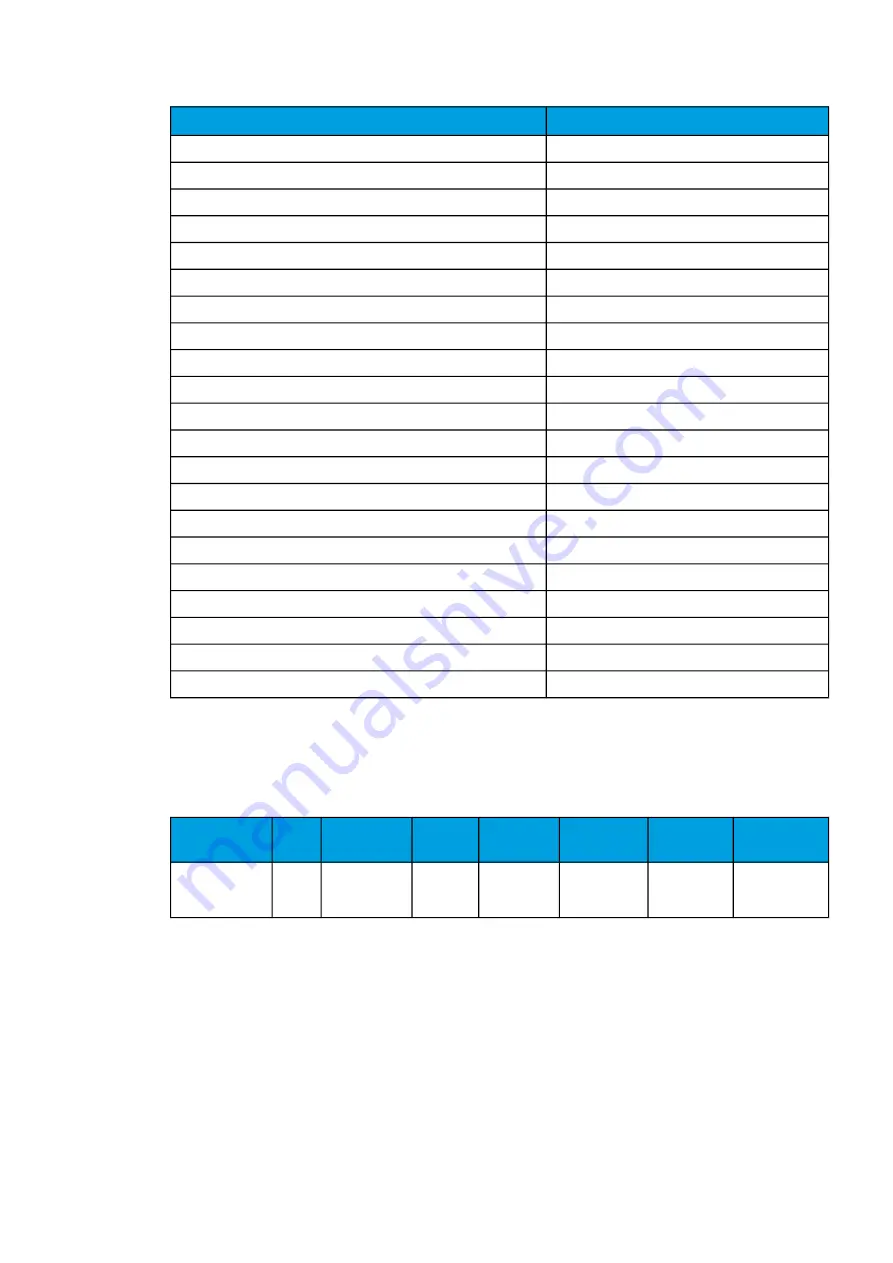
Event block name
Event names
CUB1
Trip OFF
CUB1
Block ON
CUB1
Block OFF
CUB2
Start ON
CUB2
Start OFF
CUB2
Trip ON
CUB2
Trip OFF
CUB2
Block ON
CUB2
Block OFF
CUB3
Start ON
CUB3
Start OFF
CUB3
Trip ON
CUB3
Trip OFF
CUB3
Block ON
CUB3
Block OFF
CUB4
Start ON
CUB4
Start OFF
CUB4
Trip ON
CUB4
Trip OFF
CUB4
Block ON
CUB4
Block OFF
The function registers its operation into the last twelve (12) time-stamped registers. The register of the
function records the ON event process data for START, TRIP or BLOCKED. The table below
presents the structure of the function's register content.
Table. 5.4.5 - 83. Register content.
Date and time
Event
Pre-trigger
current
Fault
current
Pre-fault
current
Fault
currents
Trip time
remaining
Used SG
dd.mm.yyyy
hh:mm:ss.mss
Event
name
Start/Trip
-20ms current
Start/Trip
current
Start -200ms
current
I1, I2, IZ mag.
and ang.
0 ms...1800s
Setting
group 1...8
active
5.4.6 Harmonic overcurrent protection (Ih>; 50H/51H/68H)
The harmonic overcurrent function is used for non-directional instant and time-delayed overcurrent
detection and clearing. The number of stages in the function depends on the relay model. The function
constantly measures the selected harmonic component of the selected measurement channels, the
value being either absolute value or relative to the RMS value. The blocking signal and the setting
group selection control the operating characteristics of the function during normal operation, i.e. the
user or user-defined logic can change function parameters while the function is running.
The non-directional harmonic overcurrent function uses a total of eight (8) separate setting groups
which can be selected from one common source.
A
AQ
Q-C215
-C215
Instruction manual
Version: 2.07
© Arcteq Relays Ltd
IM00040
127

